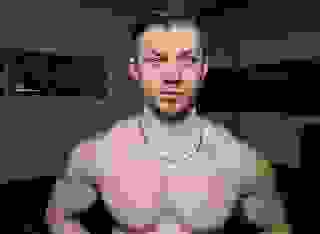- Gay Male
- The Heart is a Poor Judge Ch. 01
Note: You can change font size, font face, and turn on dark mode by clicking the "A" icon tab in the Story Info Box.
You can temporarily switch back to a Classic Literotica® experience during our ongoing public Beta testing. Please consider leaving feedback on issues you experience or suggest improvements.
Click hereJust a quick word to say this is a very slow-burning romance. Scenes of sexual intimacy will not occur until later. Hope you enjoy Gabe and Miguel's story.
*****
Gabe backed off the accelerator and the engine droned downward in fourth gear; he kicked in the clutch and braked, steering onto the wide gravel shoulder. There was no way he had been speeding. He knew the limit on this stretch, was prone to frequent checks of the speedometer. His gaze darted again for the mirror. Dust rose up behind him in great billowing clouds, blotted with shafts of colored light. He came to a stop.
He pressed the back of his head into the headrest, covered his face with his hands. Recently, he had torn through a dozen-or-so crime thrillers, a fleeting obsession, now spilling from the nightstand back in his childhood bedroom. They were plagued by scenes just like this.
He shut off the engine. His first thought in the still heat was, of course, of the present contents of the trunk. They were packed densely in, heavy enough to affect not only the way the car drove, but how it sat: squatting on its haunches as if ready to pounce.
The night was quiet except for the faint patter of the patrol car, whose engine labored under the burden of air conditioning; a droning condenser fan cycled on and off several times before the officer approached. Through the mirror, Gabe picked out a faint smile, but when he turned to face the man through his open window, it was gone.
The officer was handsome, and young—younger than Gabe's boss, Eddie, who was himself only thirty-two. The man's hair was golden and his face was superficially tanned, spotted with freckles. "Headlight's out." His voice cut low through the sage-filled air.
Gabe glanced ruefully down the hood at the sloped red lid of one pop-up headlight, then the other. "Which one, sir?"
"The left one."
He made a show of scanning the ground ahead. "I think I can see it now. It's not so bright on the left side."
"Now you see it, don't you."
"I do. Can't miss it, now that you've pointed it out. Wish I'd noticed sooner."
The officer's mouth shut and became a flat line. He stepped back in appraisal of the car. "Sitting pretty low in the rear, aren't we?"
"The struts are getting weak. That's why it sags like that." He had devised the lie carefully, over months, in frightened anticipation of this night. But until now, he had been naive enough to think it might never come.
"Uh huh," said the officer. "A car's not roadworthy with bad struts."
"I know," said Gabe. "I'm looking into replacing them—"
"Where you from, kid?" The interruption had come in the form of an annoyed bark. "Where's home?"
"I'm from the markets."
The young patrolman looked doubtful. "Rent's getting high in the markets, these days."
Gabe nodded, aware that the officer—blue eyes waiting, scrutinizing, hungry for a slip—was not making simple conversation. Why hadn't he asked for Gabe's license and registration? "It's my parents' place."
"Your parents from around here?"
What do you think, Gabe wanted to ask. Instead, in a flawless, colorless voice, he said, "You mean the city? Not originally, no."
For a moment he thought the officer was going to come right out and ask. It wouldn't be the first time. Instead, the man's strong, freckled arm, sprouting from a short tan uniform sleeve, gestured up the highway. "If you go back out that way, you don't get anywhere at all. You get a hundred miles of desert. So where exactly were you coming from?"
"Just out for a drive," said Gabe. His voice fought with itself not to sound desperate. "I've got stuff going on at home. I needed to clear my thoughts."
There was a strange instant of tenderness in the eyes of the officer. He leaned in toward Gabe, as if about to share a secret, breath laden with the tang of vinegar. "You and I both know," he said in a tragedy-summoning voice, "that you're not the kind who gets off scot-free in a place like this."
"I don't understand."
"I think you do," he muttered. "There are people whose looks don't work up suspicion. They don't look like you. And they drive nice cars—cars with two working headlights. Cars that don't look loaded up with god-knows-what in the trunk."
Gabe read the man's thoughts: You're sure as hell not white, so what are you? He felt the heat of the officer's angry confusion as it festered beneath their exchange. What the fuck are you?
He knew from experience that it was much better to be either one bad thing or another. He knew this because he was neither. He knew it because he was both. A peculiar strain of frustration mounted in men, even young ones like the officer, when they could not pin someone down. Gabe presented a fast-moving target, a blur that the man in uniform could fire at, but never hit—thereby tarnishing his badge-brandishing prowess.
"I can't help it how I look," said Gabe. "But I promise I'm just out for a drive." He hated that his voice was soaked in apology. "And, look, it's just an old car. I like old cars. I swear I'll get it fixed right up."
"I like old cars, too," said the officer. His features softened. "Tell you what. You let me take a look at what you've got back there, and then I'll let you go. Don't even need to see your documents. We're going off script here—you okay with that?"
One by one, Gabe felt tiny droplets of sweat surface on his upper lip. The inside of his mouth dried up. "Sure, just need to reach down here."
"Go ahead."
He reached down. At first, his clammy finger slipped against the molded plastic of the lever. He got a better grip on it and pulled up. There was a clunk and the muted sound of a spring as the trunk lid released. It arced upward on its hinge, blocking the rear window and the warm headlights of the patrol car, casting him in darkness.
The officer, still caught waist up in a beam of light, looked down at Gabe's now blackened form one last time before trudging slowly, boots scraping the dirt, toward the rear of the car.
Maybe the young man spent only ten seconds back there, standing deathly still and peering (stupefied, Gabe imagined) into the trunk. Maybe it was an entire minute, or five. Gabe had no way of recalling; time stretched out before him then, into an expanse so vast that it lost meaning. He was on an otherworldly plane, perfectly, conceptually flat, like a video game. The ground was a lime-green turf that extended, beautifully unvaried, until the theoretical horizon, at which a disruption stood: the promise of purple mountains, and orange sky, and clouds whose undersides glowed pink. He was desperate to get to these mountains, to find peace in them. But they were just a backdrop, a figment that he could walk forever toward and never reach. Later on, Gabe would look back on that night and recall spending what felt like many hours in this space.
The trunk lid came down hard. The officer returned.
"What is all that stuff?" His voice was low and magnetic.
"Car parts."
"Bullshit. Or else you would have told me you were hauling car parts. I need you to tell me what it really is."
"I don't know," said Gabe. Walk toward the mountains. "I really don't know." He tried maintaining eye contact. He thought it might help somehow, might steer them both in the right direction. Just keep walking.
The officer regarded him in silence. He brushed his hand down the front of his pants. The highway was empty and quiet.
"Tell me," he said, "how far off the script do you want to go?"
"What do you mean?"
"I mean that if we stay on script here...I'll arrest you, take you in. I'll ruin everything for you. ...Or we can go off script." The officer touched the front of his pants again, and his hand lingered there. "Way off script, I mean."
"Off script," said Gabe, his voice shaking. "I want to go off script." Maybe it was just his imagination, but those beautiful, inviting mountains didn't seem quite so distant now. Perhaps it was possible to reach them after all. Better keep walking and see, he thought, as the officer's gentle voice asked him to step out of the car.
--
I asked them several times if they were ready. They kept telling me that enough time had passed for them to reflect in peace. They offered up sad looks and shrugs and said it was completely up to me. That's how came to know I was the one holding things up, not them. Once I realized it, I gave myself a good hard slap across the face, after which the process set itself in motion, became a force all its own, one that I could not stop.
Sometimes I can feel all seven years, can remember the events separating each summer as it has come an gone since then, but most of the time I cannot. A phrase came to me as I began taking inventory, scraping at the surface, turning completely away at times: mental exhumation. I even wrote it down. As no single phrase can, it does not cover all of the feelings I associate with the process, but so far, it comes closest to doing so.
It is an endless delight to ask them about their lives, but especially Gabe, because his immediate reaction to my questioning is reward enough—the way his backstairs smile appears from nowhere, how he shifts his eyes around the room and pretends like he is going to keep something from me, which never ends up being the case. Gabe is incredibly trustful given what he has endured, and for all of the shyness he projects, he is not afraid to share his experiences with me. I am thankful for that.
His full name is Gabriel Marcos Villanueva. Back then, he was just eighteen. He lived with his mother in a southern borough of Las Sombras, overlooking the markets, and not far from the ocean. His building was old and concrete crumbled at the edges of the balconies. A wall of white stone towers nearer the coastline sparkled at night in dots of yellow and white, and a thin strip of water peeked through an unlikely gap between them. On hot nights when he got home from work, he would enter his mother's room, remove a layer of blanket and wipe her face with a damp rag, then sleep above the street with nothing but an unfurled foam scroll. In order to fall asleep, he would focus on that naked scrap of ocean and bring himself to it. He says it cooled him down. In the morning, the traffic and commerce spooled up four floors below, revving, bleating, reeking of exhaust.
His runs took place in the late evening. They went like this: First he would go underground and take the Emerald Line downtown in time to catch the last Orange Line east, toward the desert. His car waited at the end of the line in a park-and-ride, an endless gravel sea, where it was (in his words) all fucked up with dust.
He would drive ten more miles east out of the city on a narrow, winding highway and then turn north onto an unmarked, unpaved road, the guts of his car tilling the earth as he steered through dried-out ruts. Five miles in, the checkpoint: private property. He was waved through by a man whose face he couldn't ever get a good look at, wheels still rolling; stars sprang up over a natural granite monument to the left. The road would dip and wind through brush for another mile before circling down into an encampment no bigger than a baseball diamond, half-buried under a lonely ring of sycamore trees.
There were cicadas here the size of your fist, he tells me, and loud enough to drown out the smaller sounds of the night. He liked to shut off his lights first and then the car, easing to a stop in the crunching gravel between two mobile homes. A third lay straight ahead, beyond a sharp right curve in the lane. He would pull the trunk release by his left foot and wait.
His father once worked in the trade. In a world such as Gabe's, it was common to find oneself grabbing hold of a passed torch. But Gabe retrieved his from the ground, where it had fallen and lay still next to his father's unmarked body. (Marco Villanueva was found dead on a Tuesday evening in May of 1998, slumped over his desk in the cramped encampment office, the victim of a massive stroke.)
Early in the process, I suggested that we start with his father's death, but Gabe shook his head and told me, "That's too early. It's not a good place to start."
Gabe never asks for sympathy from me, nor from anyone else—with the single exception, I suspect, of Miguel. But even of this, I have no proof. In fact, he looks straight at me and says in a stony voice: "I don't want anyone feeling sorry for me. They should save it for someone who hasn't been given a fighting chance in this world. I have, and I'm grateful for that."
--
He was alone now, tightening his belt around his waist, diving down to the mottled burgundy floor of the back seat. He could have sworn there was an extra somewhere. Finally, he felt it, drawing a small gray box containing one sealed-beam headlamp from beneath passenger seat. He retrieved a compact set of tools from the glovebox and went to work.
Ten minutes laters he resumed course down the highway with two working headlights. He picked up speed to make up for lost time. Gabe had never been late to the warehouse before. He hoped Miguel was the patient kind, but didn't have anything to go on; even after a whole year of deliveries, he hardly knew Miguel at all.
He thought through a sensible course of action. He would offload the goods, then immediately call Eddie and tell him what happened. Eddie would want to know why the officer let him go. That was the crux of this whole thing. He could already imagine Eddie's escalating demands: How was such a thing even possible? What exactly did the officer say? Would someone be coming after them later on? Would a whole team of cops storm the encampment?
No. Gabe knew they were safe. He seen the genuine desire in the patrolman's eyes, had felt it on his own skin. After...had acknowledged their truce, and the officer's satisfaction—gratitude, even—at what had transpired. Gabe's exoneration had fallen like a dark curtain over the scene. But what to tell Eddie? Gabe would say he didn't know why he was let go. He would conjure actual surprise and bewilderment, insist that it just made no sense to him at all. And what could Eddie really say to that? If Gabe didn't know, he didn't know. Just the thought of being dishonest with Eddie stirred up a pain in his chest. But his memory ventured once more down the strange, meandering path that had been his interaction with the officer, and he was left with no doubt. He could not be honest about that.
He pulled into the lot forty minutes later and saw the lean, strong figure of Miguel stamping out a cigarette near his usual post, a rusting iron pipe set and filled with concrete just to the left of the garage door. Gabe thought he detected some anxiety in the young man's face (it was a full twenty minutes past the mark, after all). But if it was there, it sank quickly beneath Miguel's unwavering demeanor: curt, cool, collected.
"Hello," Miguel said.
"Hello," Gabe replied through his open car window. The usual greeting. Miguel left to open the garage door and the drop-off procedure transpired cleanly, without another word.
Gabe stayed on the surface streets as he made his way back to the park-and-ride. Freshly unburdened, the car floated over a division boulevard that ran along the south edge of the borough. He passed three payphones before spotting an old fashioned black booth, the kind with razor-sharp metal privacy shutters that could be cranked closed at the telephoner's discretion. He stepped in and did so, then dialed the number for Eddie's cellular phone.
A gruff voice crackled through almost immediately. Eddie did not screen calls to his personal phone.
Gabe told him everything in a strangled whisper. He chose his words quickly but with great care, speaking in an improvised half-code. There was a long pause on the other end of the line.
"Gabe."
"What?"
"I need you to calm down."
"Yes, sir."
"I need you to breathe."
"Okay, sir, I'll try."
"Come out to camp early tomorrow. Let's say..." Eddie paused and Gabe heard the sound of smacking gum—Eddie's habit since he had quit smoking. "...Let's say half an hour early."
"Alright."
"That okay?"
"That's okay, sir."
"Good. We'll talk more then. I don't know where the fuck you're calling from, but we sure as hell can't get into specifics over an unsecured line."
"I know."
"Gabe."
"Yeah?"
"Don't worry about it tonight, okay? Don't even think about it. You've got too much going on."
"Okay."
A soft click came through and Eddie was gone. Gabe stood in the stifling air of the booth until the off-hook tone began whimpering from the earpiece. It was almost two in the morning. He drove back out onto the boulevard, regained his bearings and continued east, toward the desert.
—
What does your daddy do for work? In those days, it was a question children were used to hearing. He was asked many times—all of us were. But of course for Gabe, answering truthfully wasn't an option, so he was taught to lie.
"Tell them I'm a trapeze artist," his father said when he was in the first grade. "You know what that is?"
Gabe nodded, his eyes big, brown and wondering.
"Tell them I can't talk to your class right now because I'm traveling with the circus. In Europe. You know where that is?"
Gabe shook his head.
"But you can tell them, right?"
"Yes, but what is your real job?"
"I just told you," he said, a strange grin spreading across his face. "I am a trapeze artist."
Gabe delivered the lie whenever he was prompted by teachers, doctors, other children—anyone who wanted to know. He lied without fail, without drama. Naturally, his childhood peers took great interest in this revelation and pressed him for details. He had little trouble shrugging them off. Adults, upon hearing his answer, tended to leave him alone.
Even when he was very young, he knew his father went to the desert to work. As he got older, he came to understand a little about what Marco did there, managing people and bookkeeping and making deliveries. But there was so much his parents didn't say, wouldn't say, and with no siblings to confer with, he was left to wonder on his own. Gabe couldn't remember when exactly it happened, but the truth came flooding into his psyche during his early teens: The fact that he couldn't know, that his parents wished for him not to ask, was totally abnormal, incredibly bizarre. He knew then that this thing his father did to house them in a decent building (indeed, to place grilled beef atop rice noodles in the fancy variant of ceramic bowls that didn't chip) was surely illegal.
Privately, he fought to overcome the pain and shock this brought to his life. He would later recall the ensuing years as dark and quiet ones. There was nothing truly clean in his world, nothing untouched by the hands of evil, so his eyes instead fell to a more palatable realm: a hundred thousand pages of books and magazines and occasionally literary journals—whatever he could get his hands on. Meanwhile, his grades flatlined, an issue for which his parents showed little concern.
And then, one day when he was almost seventeen, he joined his father for a walk along the beach. They went very early in the day, beating the rush of tourists, stepping out onto a long and narrow pier. Uniform purple and red flags ran its length, flanking them on both sides, flapping urgently in the breeze. When they reached the end, his father folded his arms on the rail and stared out at the open water. Gabe studied him for a second before doing the same.
His father's fist thudded repeatedly against the rail before he spoke. "You read many, many books, my son. Never stop that habit. It will give you tools others do not have. I recognize some of the titles. I know the stories contained within them. Surely by now they have taught you things about the way the world really works."








